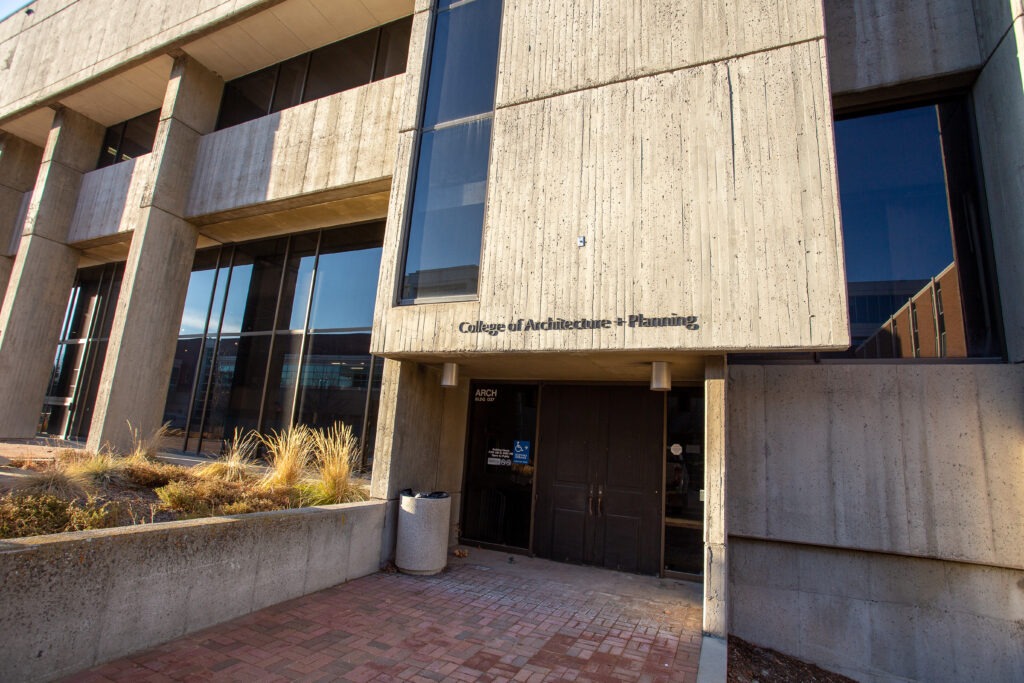Juris Doctor (JD) & Certificate
Requirements
The Juris Doctor (JD) is a full-time, three-year program that provides students with a solid intellectual foundation on which to build their legal career. First-year students learn core legal principles, concepts, theory, skills, and a thorough grounding in legal reasoning and analysis. Second- and third-year students have the opportunity to focus their studies on areas of particular interest through advanced classes, clinics, writing projects, and certificates of specialization.
JD ACADEMIC ADVISOR

FOR CURRENT JD STUDENTS ONLY:
If you are a prospective student interested in attending law school, please visit our Office of Admissions webpage to schedule a meeting with our Admissions team.
FORMS
JD DEGREE REQUIREMENTS
The College of Law offers only a full-time legal education program. Students are expected to complete the requirements for a JD degree within three years (no fewer than five semesters [fall and spring]) of the regular academic year. Students wishing to graduate in five semesters should consult with the Associate Director of Student Advising & Activities. If you fail to complete the requirements for the JD degree within four years, you must submit a petition for readmission to the College of Law Readmission Committee. The JD degree cannot be completed later than 84 months (seven years) after a student has commenced law study at the College of Law or a law school from which the College of Law has accepted transfer credit.
The following is a list of College of Law requirements, in addition to the requirements of ABA, for candidates seeking a JD degree:
Total credit hour requirements: 88 credits
Minimum required GPA: 2.5
First-year required courses: 31 credits
Upper-level requirements: 57 credits
FIRST-YEAR COURSE REQUIREMENTS
The Utah Law registrar will register students for their first-year of law classes:
- LAW 6000: Introduction to Law
- First-year law students begin fall classes one week before the regular fall semester begins with an orientation and Introduction to Law Week. Orientation gives incoming students basic information about how the law school functions and includes mandatory sessions on setting up computer accounts, exam policies, academic discipline policies, and financial aid. Introduction to Law, taught by the law school faculty, is a pass/fail course required for graduation that acquaints first-year students with methods of legal study and provides a preview of the coming year. The week also includes social events sponsored by the law school and student organizations.
- LAW 6040: Civil Procedure (4 credits, fall)
- LAW 6060: Constitutional Law I (4 credits, spring)
- LAW 6080: Contracts (4 credits, fall)
- LAW 6100: Criminal Law (4 credits, spring)
- LAW 6120: Property (4 credits, spring)
- LAW 6140: Torts (4 credits, fall)
- LAW 6180: Legal Methods I (3 credits, fall)
- LAW 6181: Legal Methods II (3 credits, spring)
- LAW 6190: Legal Research (1 credit, fall)
SECOND & THIRD YEAR REQUIREMENTS
The following courses are required for graduation and MUST be taken in the second or third year:
- LAW 7410: Constitutional Law II (3 credits)
- LAW 7900: Legal Profession (3 credits)
- Seminar Writing Requirement (3 credits; requires a B or better)
- LAW 7800: Seminar topic OR
- LAW 7971: Directed Research with Associate Dean for Academic Affairs' permission OR
- A supervising faculty member certifies to the Associate Dean of Academic Affairs that a student’s Seminar paper written outside a Seminar course meets all the requirements included in this section. The Seminar Writing Requirement is not satisfied with a paper written for publication in the Utah Law Review or other journals, briefs or other materials prepared for competitions, or work product produced in clinics, field placements, or internships.
- Experiential Learning Requirement (minimum of 6 credits)
- Students must complete a minimum of six (6) credit hours in clinics, field placements, or simulation courses. These courses integrate doctrine, theory, skills, legal ethics and engage students in developing professional skills.
- Electives (remaining 46 credits)
MINIMUM CREDIT HOUR RULES
- Full-Time Status: A student must be enrolled for no less than nine (9) credit hours during each semester of the regular academic year to be considered a full-time student (full-time status for financial aid purposes may require additional credit hours.) Enrollment for less than nine (9) credit hours during the regular academic year requires approval from the Assistant Dean of Student Affairs.
-
- We recommend students take at least 15 credit hours each semester to reach the 88 credit hour requirement for graduation.
-
- Directed Faculty Instruction: Of the 88 credits needed for a law degree, at least 64 credits must come from courses involving attendance in regularly scheduled sessions or direct faculty instruction (including directed research, in-house clinics, and asynchronous online courses). These 64 credit hours cannot include field placement, teaching assistantships, competitions, publications, and/or graduate course credit earned outside the law school.
MAXIMUM CREDIT HOUR RULES
- Field Placement: A student may earn a maximum of 14 credit hours in the repeatable field placement credit course.
- Other Academic Credit: A student may earn a maximum of 12 credits hours for ungraded teaching assistantships, competitions, and/or student publications.
- Directed Research and Directed Studies: A student may earn a maximum of six (6) credit hours for Directed Research (LAW 7971) and Directed Studies (LAW 7972) combined. Per semester, students may not exceed three (3) credit hours of Directed Research or two (2) credit hours of Directed Studies. Additionally, the total combined credit hours for both courses in a single semester cannot exceed three (3) credit hours.
- Non-Law Graduate Courses: A student may earn no more than six (6) credit hours of graduate-level, non-law school coursework, as approved by the Associate Dean of Academic Affairs.
- Ungraded Courses: A student may earn a maximum of 18 credit hours of ungraded (pass/fail) credit while in residence. Students may elect to take ONE class as Credit/No Credit (CR/NC); however, this option does not apply to Constitutional Law II, Legal Profession, Seminars, or courses required for a certificate. This limit does not include transferred credit from graded non-law school courses or graded courses taken at another law school.
Students shall demonstrate competence in core legal doctrinal subjects.
Lawyers must have a basic understanding of multiple core areas of legal knowledge, regardless of their eventual area(s) of practice. In achieving this learning outcome, a student will demonstrate competence in his or her knowledge of core doctrinal subjects, including all required courses and other courses essential for the practice of law.
Students shall demonstrate competence in legal research, writing, and drafting.
Lawyers must be able to research and write about the law. In achieving this learning outcome, a student will be able, by the time that he or she graduates from law school, to:
(a) Find relevant state and federal cases both in print reporters and in on-line research databases such as LEXIS and Westlaw;
(b) Find relevant federal and state statutes both in print and in on-line research databases;
(c) Find relevant federal and state administrative rules and regulations, including agency guidance documents and reports;
(d) Write competent memoranda that explain an area of law and its relevance to given facts;
(e) Write court pleadings and motions that competently advocate a client’s position; and
(f) Draft other types of legal documents such as contracts, deeds, and wills.
Students shall demonstrate competence in legal reasoning and analysis.
Lawyers need to be able to solve problems, both for their clients and for society (or segments of society) more generally. In achieving this learning outcome, a student will demonstrate the ability, by the time he or she graduates, to:
(a) Identify legal problems, whether a client’s or society’s, that need to be resolved;
(b) Find, identify, and synthesize principles and rules of law relevant to the identified problem from cases and statutes;
(c) Apply those rules and principles to the facts at hand to identify options and to suggest courses of action to a client; and
(d) Use legal scholarship to suggest specific changes and improvements in specific areas of law for the benefit of society or particular sub-populations.
Students shall demonstrate competence in applied lawyering skills.
Lawyers need to be able to engage in a number of types of interpersonal interactions—with clients, with judges, with other lawyers, and so forth—with a number of different types of communication skills, including interviewing, advising, negotiating, and persuading. In achieving this learning outcome, a student will have demonstrated, by the time he or she graduates from law school:
(a) An ability to communicate effectively with a variety of types of people in legal situations;
(b) competence in a variety of oral and written communication skills as described above; and
(c) competence in a variety of other lawyering skills, such as document drafting, trial advocacy, or dispute resolution techniques.
Students shall demonstrate an understanding of the professional and ethical obligations of the legal profession.
Lawyers are subject to the rules of professional conduct. In achieving this learning outcome, each student will demonstrate, by the time he or she graduates from law school:
(a) Competent understanding of the rules of professional conduct;
(b) Preparation to fulfill his or her professional responsibilities; and
(c) A commitment to social justice and the public good.
Students shall demonstrate competence with legal concepts, policies, and values at a scholarly level.
Under the Utah Rules of Professional Conduct, a lawyer is a public citizen having special responsibility for the quality of justice. As a public citizen and member of a learned profession, a lawyer should seek improvement of the law, cultivate knowledge of the law beyond its use for clients, and employ that knowledge in reform of the law. These tasks can be pursued a number of ways, one of which is advanced legal scholarship.
CERTIFICATES IN SPECIALIZED STUDY
Only Juris Doctor (JD) students at the S.J. Quinney College of Law are eligible to pursue a Certificate in Specialized Study. JD students who demonstrate proficiency in business law can earn the Business Law Certificate alongside their JD degree.
Certificate Requirements:
-
GPA: Maintain a minimum overall GPA of 3.0 (B average) in all courses applied toward the certificate.
-
Grades: No grade below a B- will be accepted for any course fulfilling certificate requirements.
-
Credit/No Credit (CR/NC): The CR/NC option is not allowed for any certificate-qualifying course.
-
Credit Hours: Complete a total of 17 credit hours, including:
-
-
- LAW 7050: Business Organizations (3-4 credits)
- LAW 7060: Commercial Law (3-4 credits)
- LAW 7070: Federal Income Tax (3 credits)
- LAW 7571: Contract Drafting (3 credits) OR LAW 7573: Real Estate Document Drafting (2-3 credits)
- Seminar Paper Requirement (3 credits) – Must earn a B or better. Complete either LAW 7800 or LAW 7971 with a paper focused on business law, estate planning, or tax law. (The paper must be approved by the Associate Dean for Academic Affairs.)
- Elective Courses, CLICK HERE.
-
How to Apply:
-
Apply for the Certificate in Specialized Study through the link below and make an appointment with Natasha Carlton, Associate Director of Student Advising & Activities.
Apply for Certificate in Specialized Study
NOTE: As the law school curriculum evolves, new courses or seminars may be eligible to count toward certificate course requirements. Students should consult the Associate Dean for Academic Affairs to determine whether a particular course qualifies. The Associate Dean, in consultation with relevant faculty members, also has the authority to remove courses from the list of electives if they are no longer offered.
Only Juris Doctor (JD) students at the S.J. Quinney College of Law are eligible to pursue a Certificate in Specialized Study. JD students who demonstrate proficiency in criminal law can earn the Criminal Law Certificate in addition to their JD degree.
Certificate Requirements:
-
GPA: Maintain a minimum overall GPA of 3.0 (B average) in all courses applied toward the certificate.
-
Grades: No grade below a B- will be accepted for any course fulfilling certificate requirements.
-
Credit/No Credit (CR/NC): The CR/NC option is not allowed for any certificate-qualifying course.
-
Credit Hours: Complete a total of 17 credit hours, including:
-
- LAW 7030: Criminal Procedure: Investigation (3 credits)
- LAW 7040: Evidence (4 credits)
- Seminar Paper Requirement (3 credits) – Must earn a B or better. Complete either LAW 7800 or LAW 7971 with a paper focused on criminal law. (The paper must be approved by the Associate Dean for Academic Affairs.)
- ** LAW 7937 & 7938: Criminal Process (year-long course in 3L year, 3 credits total; 2 credits in Fall, 1 credit in Spring) AND *LAW 7925: Field Placement credit. These are taken concurrently.
-
- REQUIRED Prerequisites:
- LAW 7040: Evidence AND
- LAW 7030: Criminal Procedure: Investigation
- Recommended Prerequisites: LAW 7072: Trial Advocacy
- **Exception: The Associate Dean for Academic Affairs may waive the field placement requirement or allow a substitute if a student has a valid reason (e.g., if the student does not intend to pursue a career as a prosecutor or defender).
- REQUIRED Prerequisites:
-
- Elective Courses, CLICK HERE.
-
How to Apply:
-
Apply for the Certificate in Specialized Study through the link below and make an appointment with Natasha Carlton, Associate Director of Student Advising & Activities.
Apply for Certificate in Specialized Study
NOTE: As the law school curriculum evolves, new courses or seminars may be eligible to count toward certificate course requirements. Students should consult the Associate Dean for Academic Affairs to determine whether a particular course qualifies. The Associate Dean, in consultation with relevant faculty members, also has the authority to remove courses from the list of electives if they are no longer offered.
Only Juris Doctor (JD) students at the S.J. Quinney College of Law are eligible to pursue a Certificate in Specialized Study. JD students who demonstrate proficiency in environmental and natural resources law can earn the Environmental and Natural Resources Law Certificate in addition to their JD degree.
Certificate Requirements:
-
GPA: Maintain a minimum overall GPA of 3.0 (B average) in all courses applied toward the certificate.
-
Grades: No grade below a B- will be accepted for any course fulfilling certificate requirements.
-
Credit/No Credit (CR/NC): The CR/NC option is not allowed for any certificate-qualifying course.
-
Credit Hours: Complete a total of 17 credit hours, including:
-
-
- LAW 7300: Administrative Law (3 credits)
- LAW 7240: Environmental Law (3 credits) OR LAW 7200: Natural Resources Law (3 credits)
- Seminar Paper Requirement (3 credits)– Must earn a B or better. Complete either LAW 7800 or LAW 7971 with a paper focused on environmental or natural resources law. (The paper must be approved by the Associate Dean for Academic Affairs.)
- Elective Courses, CLICK HERE.
-
How to Apply:
-
Apply for the Certificate in Specialized Study through the link below and make an appointment with Natasha Carlton, Associate Director of Student Advising & Activities.
Apply for Certificate in Specialized Study
NOTE: As the law school curriculum evolves, new courses or seminars may be eligible to count toward certificate course requirements. Students should consult the Associate Dean for Academic Affairs to determine whether a particular course qualifies. The Associate Dean, in consultation with relevant faculty members, also has the authority to remove courses from the list of electives if they are no longer offered.
Only Juris Doctor (JD) students at the S.J. Quinney College of Law are eligible to pursue a Certificate in Specialized Study. JD students who demonstrate proficiency in intellectual property law can earn the Intellectual Property Certificate in addition to their JD degree.
Certificate Requirements:
-
GPA: Maintain a minimum overall GPA of 3.0 (B average) in all courses applied toward the certificate.
-
Grades: No grade below a B- will be accepted for any course fulfilling certificate requirements.
-
Credit/No Credit (CR/NC): The CR/NC option is not allowed for any certificate-qualifying course.
-
Credit Hours: Complete a total of 17 credit hours, including:
-
-
- LAW 7760: Patent Law (3 credits)
- LAW 7876: Copyright Law (3 credits)
- LAW 7058: Trademark & Unfair Comp. (2 credits)
- Seminar Paper Requirement (3 credits) – Must earn a B or better. Complete either LAW 7800 or LAW 7971 with a paper focused on intellectual property law. (The paper must be approved by the Associate Dean for Academic Affairs.)
- Elective Courses, CLICK HERE.
-
How to Apply:
-
Apply for the Certificate in Specialized Study through the link below and make an appointment with Natasha Carlton, Associate Director of Student Advising & Activities.
Apply for Certificate in Specialized Study
NOTE: As the law school curriculum evolves, new courses or seminars may be eligible to count toward certificate course requirements. Students should consult the Associate Dean for Academic Affairs to determine whether a particular course qualifies. The Associate Dean, in consultation with relevant faculty members, also has the authority to remove courses from the list of electives if they are no longer offered.
Only Juris Doctor (JD) students at the S.J. Quinney College of Law are eligible to pursue a Certificate in Specialized Study. JD students who demonstrate proficiency in international law can earn the International Law Certificate in addition to their JD degree.
Certificate Requirements:
-
GPA: Maintain a minimum overall GPA of 3.0 (B average) in all courses applied toward the certificate.
-
Grades: No grade below a B- will be accepted for any course fulfilling certificate requirements.
-
Credit/No Credit (CR/NC): The CR/NC option is not allowed for any certificate-qualifying course.
-
Credit Hours: Complete a total of 17 credit hours, including:
-
-
- LAW 7270: International Law (3 credits)
- Seminar Paper Requirement (3 credits) – Must earn a B or better. Complete either LAW 7800 or LAW 7971 with a paper focused on international law. (The paper must be approved by the Associate Dean for Academic Affairs.)
- Elective Courses, CLICK HERE.
-
How to Apply:
-
Apply for the Certificate in Specialized Study through the link below and make an appointment with Natasha Carlton, Associate Director of Student Advising & Activities.
Apply for Certificate in Specialized Study
NOTE: As the law school curriculum evolves, new courses or seminars may be eligible to count toward certificate course requirements. Students should consult the Associate Dean for Academic Affairs to determine whether a particular course qualifies. The Associate Dean, in consultation with relevant faculty members, also has the authority to remove courses from the list of electives if they are no longer offered.
Only Juris Doctor (JD) students at the S.J. Quinney College of Law are eligible to pursue a Certificate in Specialized Study. JD students who demonstrate proficiency in litigation law can earn the Litigation and Dispute Resolution Law Certificate in addition to their JD degree.
Certificate Requirements:
-
GPA: Maintain a minimum overall GPA of 3.0 (B average) in all courses applied toward the certificate.
-
Grades: No grade below a B- will be accepted for any course fulfilling certificate requirements.
-
Credit/No Credit (CR/NC): The CR/NC option is not allowed for any certificate-qualifying course.
-
Credit Hours: Complete a total of 17 credit hours, including:
-
-
- LAW 7040: Evidence (4 credits)
- LAW 7076: Pre-trial Practice (3 credits) OR LAW 7031: Criminal Procedure: Adjudication (3 credits) OR LAW 7010: Mediation & Negotiation (3 credits)
- Field Placement OR Clinical Placement (3 credits)
-
- The placement must have a litigation or dispute resolution focus.
-
- Seminar Paper Requirement (3 credits) – Must earn a B or better. Complete either LAW 7800 or LAW 7971 with a paper focused on litigation or dispute resolution. (The paper must be approved by the Associate Dean for Academic Affairs.)
- Elective Courses, CLICK HERE.
-
How to Apply:
-
Apply for the Certificate in Specialized Study through the link below and make an appointment with Natasha Carlton, Associate Director of Student Advising & Activities.
Apply for Certificate in Specialized Study
NOTE: As the law school curriculum evolves, new courses or seminars may be eligible to count toward certificate course requirements. Students should consult the Associate Dean for Academic Affairs to determine whether a particular course qualifies. The Associate Dean, in consultation with relevant faculty members, also has the authority to remove courses from the list of electives if they are no longer offered.
Only Juris Doctor (JD) students at the S.J. Quinney College of Law are eligible to pursue a Certificate in Specialized Study. JD students who demonstrate proficiency in public interest law can earn the Public Interest Law and Policy Certificate in addition to their JD degree.
Certificate Requirements:
-
GPA: Maintain a minimum overall GPA of 3.0 (B average) in all courses applied toward the certificate.
-
Grades: No grade below a B- will be accepted for any course fulfilling certificate requirements.
-
Credit/No Credit (CR/NC): The CR/NC option is not allowed for any certificate-qualifying course.
-
Credit Hours: Complete a total of 17 credit hours, including:
-
-
- LAW 7300: Administrative Law (3 credits) OR LAW 7020: Legislative Process (2 credits) OR LAW 7886: Statutory Interpretation (2 credits)
- Seminar Paper Requirement (3 credits) – Must earn a B or better. Complete either LAW 7800 or LAW 7971 with a paper focused on public interest law and policy. (The paper must be approved by the Associate Dean for Academic Affairs.)
- Field Placement or Clinical Placement (3 credits)
-
- The placement must have a public interest law and policy focus.
-
- Certificate of Service: Complete at least 50 hours of pro bono work through the Pro Bono Initiative.
- Elective Courses, CLICK HERE.
-
How to Apply:
-
Apply for the Certificate in Specialized Study through the link below and make an appointment with Natasha Carlton, Associate Director of Student Advising & Activities.
Apply for Certificate in Specialized Study
NOTE: As the law school curriculum evolves, new courses or seminars may be eligible to count toward certificate course requirements. Students should consult the Associate Dean for Academic Affairs to determine whether a particular course qualifies. The Associate Dean, in consultation with relevant faculty members, also has the authority to remove courses from the list of electives if they are no longer offered.
FREQUENTLY ASKED QUESTIONS (FAQs)
The best way to track your degree progress is running a degree audit, an automated report that matches your completed courses with the degree requirements and shows the classes you still need to complete before graduating. Once you complete the degree audit, schedule an appointment with Natasha Carlton, Associate Director of Student Advising & Activities. Natasha can review your degree audit with you and explain any requirements left.
- Log into CIS and go to your Student Homepage
- Click the Degree Audit tile
- Click the Run Audit button
- Click Run Declared Programs to run an audit for your declared program (it'll take a few seconds for the degree audit to load)
- Click the View Audit button.
If you need help understanding your degree audit, make an appointment with Natasha Carlton, Associate Director of Student Advising & Activities.
While you are not required to take a specific number of bar classes to graduate from law school, we strongly recommend that you use Bar courses as the cornerstones of your legal education. The current Uniform Bar Exam tests 13 topics, seven of which you will take as part of the required curriculum. We recommend that you take at least four or more of the remaining six topics.
Students often spread Bar courses over their upper-division semesters, although you may wish to concentrate them in your third year.
Some Bar courses, like Evidence and Business Organizations, are prerequisites for other courses and are often taken in the second year. Most Bar courses are offered annually or every fall and spring semester. Students may wish to take a mix of three- and four-credit hour Bar courses each semester rather than concentrating on multiple four-credit-hour courses in one semester.
Students generally enroll in 14-16 hours with an average of 15 hours per semester. One suggested formula for arranging your schedule would be to include:
- One bar class
- One other exam-based class in a required or core subject area
- One seminar or writing-based course
- One experiential course or clinic
This approach balances the types of assessments, number of final exams, and range of practical lawyering skills and offers a well-rounded approach to your studies. However, students should tailor their course selection to their preferences and learning styles.
- Be mindful of when courses are taught. Some classes are offered every semester, while others are available only once a year or once every other year. Therefore, it's important to consider not only the courses you want to take in the upcoming semester but the ones you'll potentially take in subsequent semesters. By considering the availability and frequency of courses, you can strategically plan your schedule to ensure you fulfill your academic requirements while also maximizing your learning opportunities.
- Check for prerequisites and/or co-requisites. Some specialized upper-division courses, clinics, or competitions have prerequisites or co-requisites. This is also true for courses required for certificates. Look at the requirements for courses you may want to take in the future to ensure you meet any prerequisites when they are available. Certificates are optional, and you should tailor your course selection to your academic and career goals.
- Consider your interests. What topics interest you? Are there courses that sound interesting or fun, even if you don’t plan to practice in that area? Is there a professor with whom you would like to take a class? Don’t be afraid to experiment, take a course outside your comfort zone, or just take a course you think you may enjoy.
- What courses would be helpful or practical for your career? Are there certain skills you should learn for your area of law, such as trial advocacy, appellate advocacy, or drafting? Are there core doctrinal courses that will help you successfully practice?
- Watch your total classes, not just your total credits. Although students generally take 14-15 credit hours, that could represent numerous two-credit-hour classes, just a few four-credit-hour courses, or a high-credit-hour clinic. We recommend that you balance your load and limit the number of courses at the high and low ends of the credit-hour spectrum.
- Look at the whole picture. When determining your total number of credit hours, consider your other obligations and balance those as if they were classes. For example, working as a research assistant or law clerk eight to 10 hours a week is the equivalent of taking a three-credit hour course. You may wish to take 14 credit hours instead of 15 or 16 while working. If you are on Law Review or moot court, you will be doing substantial academic writing. That may not be the right semester to take a seminar.
DUAL PROGRAMS






